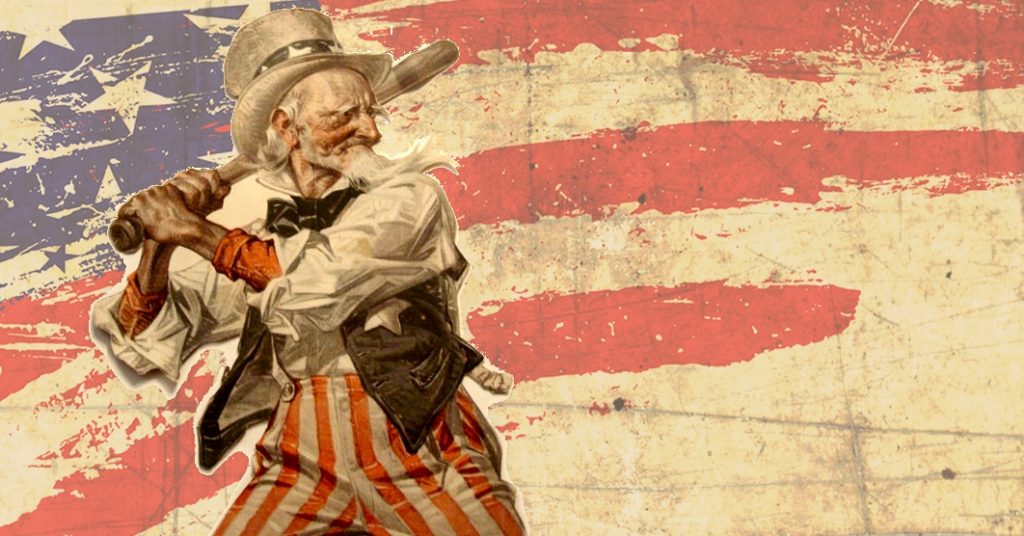
America’s people lend their hands every day to the solvency of this nation. Today, we must resolve to put those hands to work.
Our democracy is not written in stone. Rather, it’s written on paper–paper that can be written over, crumpled up, or burned. Our nation is a crucible in motion–growing, changing, and moving, and not without pain. That is my less than poetic attempt at saying that the future of our nation is up to us–we, the People–and only us.
After yesterday’s assault on the United States Capitol Building, an act of insurrection that attempted to occupy, abuse, and disrupt many of the symbols of our democracy and, chiefly, the peaceful transition of power, we the People should be more concerned than ever about what we are to do with this remarkable nation.
If you have ever had the opportunity to travel to Washington, D.C. and observe the mighty seat of our federal government, you likely know the feeling of awe and majesty it inspires. I once took the opportunity to ride a bike from the steps of the Lincoln Memorial to the steps of the Capitol building, then up Pennsylvania Avenue to the White House.
The White House is an impressive mansion, but it pales in comparison to the Capitol, whose dome can be seen all across town and even from Reagan National Airport in Alexandria. It’s worth pointing out that Pierre L’Enfant, the architect of our nation’s government seat, reserved Capitol Hill for the congress that represented America’s people–not the lone individual presiding over it. The best real estate in the city belongs to Congress, not the president.
Even the riotous mob that invaded the Capitol was observably moved once they gained entrance. Live feeds from inside the building showed the criminals quickly taking the form of average tourists, their mobile phones out to capture images of the Rotunda. They were helpless of resisting the urge to take selfies during their criminal acts framed by the dramatic and inspiring backdrop of our legislative chambers.
Our nation’s long historical narrative is messy and painful. It is easy to look back at some of our historical mistakes, both of the laughable variety and the morally indignant, and thank God that we have come so far.
Maybe we haven’t. “A revolution’s just a circle, after all,” the great North Carolina songwriter Jonathan Byrd observed. “I’ve seen the losers turned to lords and back again.”
We aren’t immune from making mistakes in our democracy, but we ought to be all the more convicted by our history to correct them. Yesterday a group of traitors attacked the United States Capitol in an effort to disrupt our democracy.
They failed. Their treason–and those who incited it–should not quickly be forgotten, nor should it be dismissed without prosecution. There are many folks smarter than me who know whether a second impeachment of the president or the invocation of the Constitution’s 25th amendment is a worthwhile pursuit or the appropriate course of action. Some fear such swift justice would dangerously dislodge a massive, violent upheaval in our land. They observe that yesterday was the tip of the iceberg. Better to keep the rest frozen in dark, murky waters and steer carefully around.
I see a small boil of people, fueled by and addicted to the methamphetamine of conspiracy, steadfast in ignoring reality, devoted to a leader who has demonstrated again and again he will never return their loyalty. Their mundane aspirations of revolution, of overthrowing or disrupting our democracy, of ignoring the principles upon which our republic operates, deserve summary judgment. Ignoring them will not make them go away.
Nor will simply inaugurating Joe Biden as the nation’s 46th president. As much as we’d like to plug our ears and pretend a new year, or a new president, or a democratic majority will solve this country’s woes, it won’t.
And if we, the grown-ups who enjoy living in this blessed nation, abdicate our responsibility as citizens to protect our democracy, we will only prove ourselves complicit.
What, then, can we do? What should we do?
We can start by reminding our representatives–both those we helped elect and those we voted against–of their duty to the Constitution. We can support their actions to serve the principles of our republic, even if we disagree with their policies or foundational beliefs.
We can continue by working harder to educate ourselves. Read the news, read the news you disagree with, read the news that’s harder to understand. We owe it to ourselves to learn beyond a singular frame of reference, to read beyond conspiracies and echo chambers, to challenge our thinking and search for our own vulnerabilities.
We can learn to listen and talk to each other. This week, I watched Won’t You Be My Neighbor, the Fred Rogers biopic, and I am convinced that we have to do better in how we treat each other. This is very, very difficult to do right now.
I am also reading the Most Reverend Michael Curry’s book, Love is the Way. Curry, who serves as the presiding bishop of the Episcopal Church of the United States, grounds his story in the love that emanates from our Creator.
Mr. Rogers and Bishop Curry share a fundamental understanding that all of humankind is created in the image of God, and that we have been endowed with God’s love and goodness, and that alone commands us to treat each other with tenderness and care. I can only beg us to keep that thought in our lizard brains as we talk to each other, especially in the rancid digital chambers of our newsfeeds and social media.
Above all, we must act. Ground your courage in love and respect and empathy, straighten your back, and speak out and take action. Think of the creative strengths with which you have been endowed and deploy them in service to our human brothers and sisters and the nation we must keep spinning into existence. They–and we–are worth it.






Leave a Reply